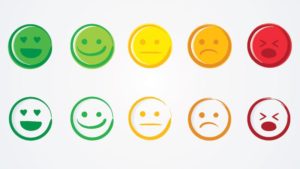Laura Ibbotson, HR Manager at Heras explains she and her team implemented a comprehensive physical and mental health package for employees without the need for significant financial investment….
The HR team is a forward-thinking strategic team and with so many priorities and a global pandemic to deal with, the last 12 months have been a challenge. Based on the circumstances we were presented with, wellbeing assumed a natural leading position on our HR agenda.

Many corporate companies have large amounts of cash to spend on wellbeing initiatives and the possibilities are endless. However, the real opportunity lies with a little creativity, implementing the ideas that are fit-for-purpose, affordable and relevant.
We have implemented many initiatives at Heras since the pandemic which are available for all employees, with some services being considered on a case-by-case basis and we fully intend to build on our wellbeing offering in 2021 and beyond.
The wellbeing calls have undoubtedly been the most successful, with many employees thanking us for simply taking the time to call them.
The main reason we did all this is that part of our HR strategy is to be an employer of choice and to be a great place to work which largely involves protecting what matters to us the most – our people. Our wellbeing initiatives are designed with our people in mind to promote their wellbeing, create a sense of belonging, and to create an environment where wellbeing is part of day-to-day life at Heras.
Our wellbeing strategy was always a key priority. However, our wellbeing agenda was projected forward due to the impact on our staff of the global pandemic. As a business we adopt an ethical approach towards wellbeing to go above and beyond for our people which is why we have launched so many initiatives in a relatively short amount of time.
Many of our initiatives are automatically rolled out rather than an opt-in service, but feedback from employees has been very positive, and even in cases when employees decide not to take up support options, the lasting memory is that they appreciated the offer.
This undoubtedly has an impact on engagement levels across our business, which is reflected by a significant improvement in our online Glassdoor reviews, and in recent exit interviews a number of staff have commented on the improved HR service. Also, because of the HR team sharing their ideas and knowledge, some of our initiatives have been implemented in other businesses. For example, a member of the HR team recently appeared as a guest speaker on a wellbeing webinar for a leading manufacturing organisation attended by more than 500 people to share our wellbeing initiatives.
We have used a range of methods and consider wellbeing to be an ongoing and integral part of our daily business. Wellbeing communications are sent out regularly via email and publicised on all available outlets. We have also recently completed wellbeing training for our managers as part of our management development programme, and actively signpost all employees, including managers, to the range of resources we have available as part of daily conversations.
At Heras we are utilising our HR system to prompt the HR team about any mental health or bereavement-related absences so that we can quickly offer support in the right way which goes towards keeping up the momentum of our wellbeing agenda.
Long gone are the days where companies tell employees to ‘leave their problems at the door’ – the world we live in simply does not match this approach. We are in an environment where there is often a war for talent and people seldom stay in a job for life anymore. A smart organisation will realise that what is best for their people is best for their business – enhanced engagement, creativity, and efficiency are just some of the rewards for businesses.
The last year has been particularly difficult for most. However, it is events like the pandemic that really put companies – and how they value their people – to the test. We are proud of the measures we have taken at Heras and, in years to come, hope that our people remember how they were treated during a life-changing pandemic.
In November, we plan to launch our leadership programme, following the successful rollout of our management programme. The leadership programme will build on the wellbeing module for line managers from our management programme.
My key takeaways from this entire process are:
Also published by the CIPD